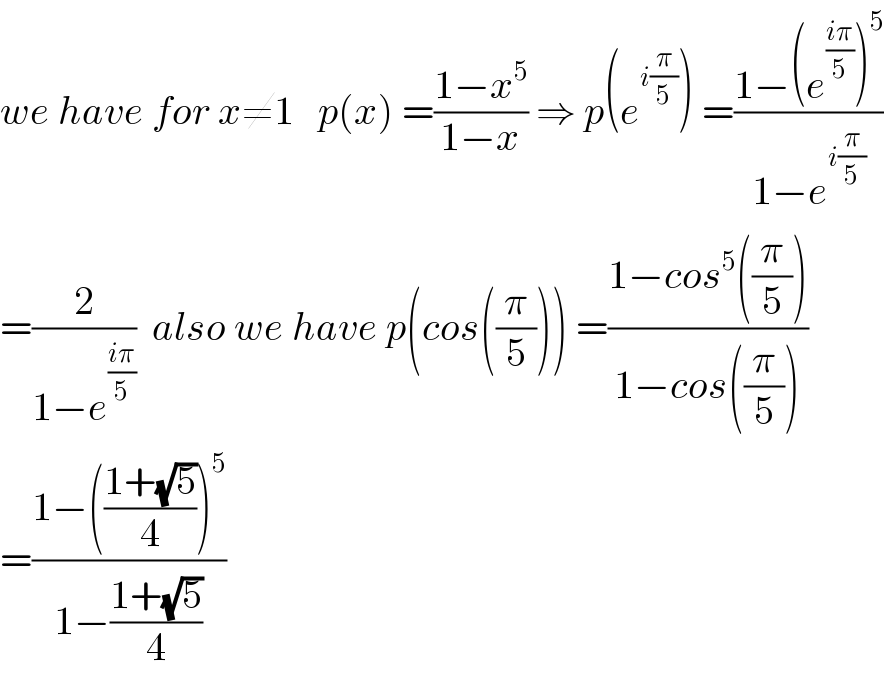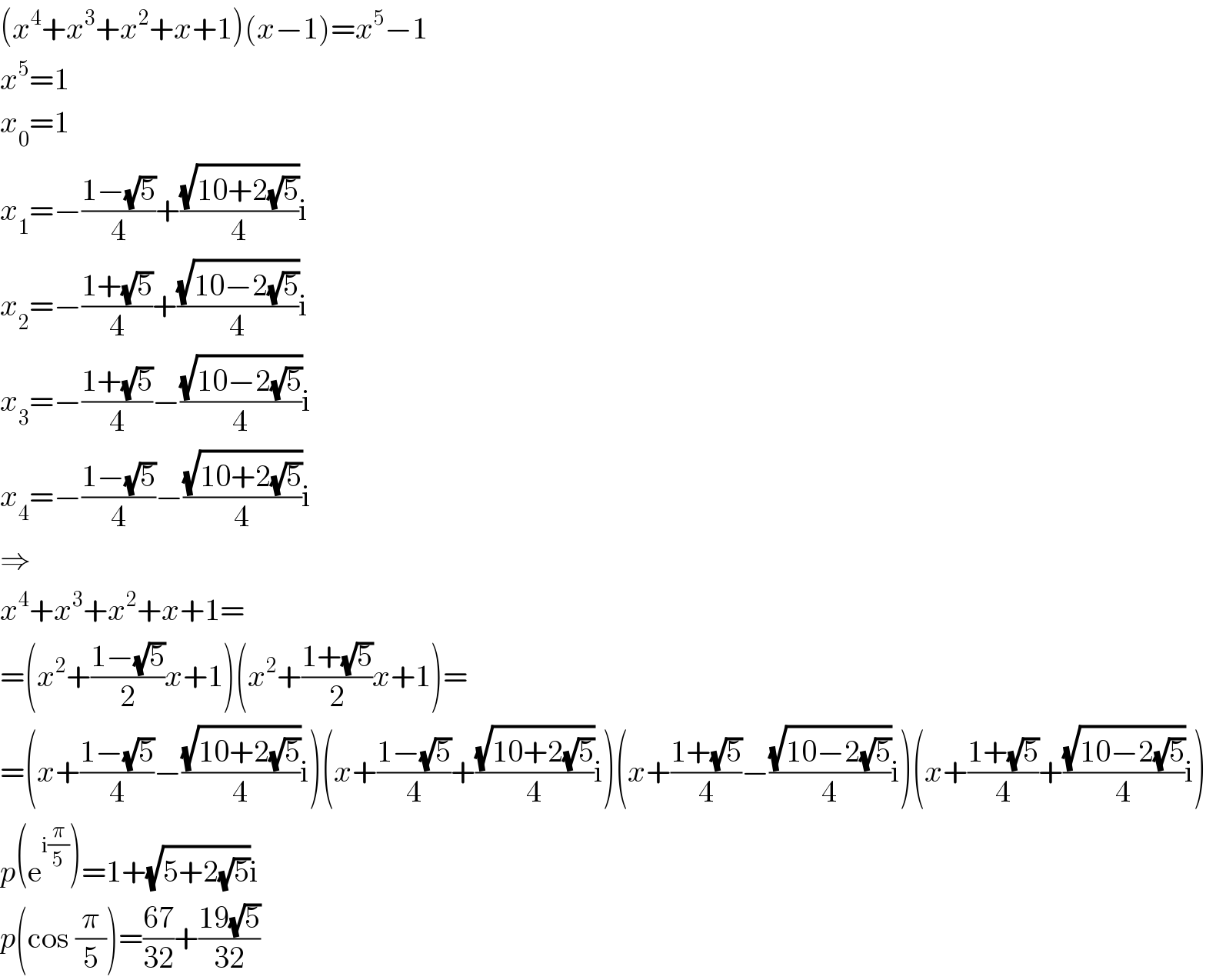
Question and Answers Forum
Previous in Relation and Functions Next in Relation and Functions
Question Number 67234 by prof Abdo imad last updated on 24/Aug/19
![factorise p(x)=1+x+x^2 +x^3 +x^5 inside C[x] and R[x] calculate p(e^(i(π/5)) ) and p(cos((π/5)))](Q67234.png)
Commented by mathmax by abdo last updated on 24/Aug/19

Commented by mathmax by abdo last updated on 25/Aug/19
![1)p(x)=0 ⇔ 1+x+x^2 +x^3 +x^4 =0 ⇔1−x^5 =0 and x ≠1 x^5 =1 let x =re^(iθ) (e)⇒r^5 e^(i5θ) =e^(i(2kπ)) ⇒r=1 and 5θ=2kπ ⇒ θ_k =((2kπ)/5) so the roots are z_k =e^(i(((2kπ)/5))) with k∈[[1,4]] p(x)=Π_(k=1) ^4 (x−z_k )=Π_(k=1) ^4 (x−e^(i((2kπ)/5)) ) =(x−e^(i((2π)/5)) )(x−e^(i((4π)/5)) )(x−e^(i((6π)/5)) )(x−e^(i((8π)/5)) ) but e^(i((8π)/5)) =e^(i(2π−((2π)/5))) =e^(−((i2π)/5)) and e^(i((6π)/5)) =e^(−i((4π)/5)) ⇒ p(x) =(x−e^(i((2π)/5)) )(x−e^(−i((2π)/5)) )(x−e^(i((4π)/5)) )(x−e^(−i((4π)/5)) ) =(x^2 −2Re(e^(i((2π)/5)) )x+1)(x^2 −2Re(e^(i((4π)/5)) )x+1) isthe decomposition inside C[x] we have cos((π/5)) =((1+(√5))/4) ⇒cos(((2π)/5))=2cos^2 ((π/5))−1 =2(((1+(√5))/4))^2 −1 =(1/8)(6+2(√5))−1 =((6+2(√5)−8)/8) =((−2+2(√5))/8) =(((√5)−1)/4) cos(((4π)/5)) =cos(π−(π/5)) =−cos((π/5)) ⇒ p(x) =(x^2 −(((√5)−1)/2)x +1)(x^2 +(((√5)−1)/2)x+1)](Q67305.png)
Commented by mathmax by abdo last updated on 25/Aug/19

Answered by mind is power last updated on 24/Aug/19

Answered by MJS last updated on 25/Aug/19

Commented by mathmax by abdo last updated on 25/Aug/19

